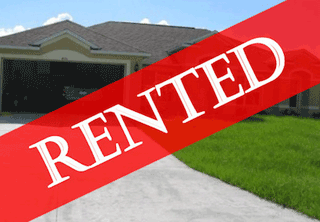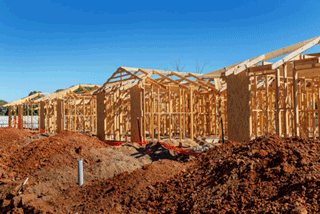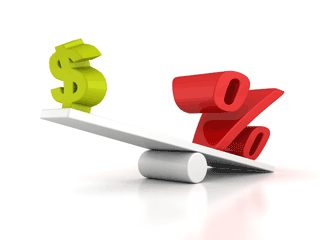Quote Of The Week
“Our research shows that many first home buyers were actually spending more on rent than they do on a mortgage – and this trend is only likely to increase in the current rental market.”
Great Southern Bank chief customer officer Megan Keleher
Rent Crisis Remains Despite Investor Rise
 A return of investors is unlikely to help ease Australia’s rental crisis in the short term.
A return of investors is unlikely to help ease Australia’s rental crisis in the short term.
The value of investor lending hit a record high for the first two months of 2022, according to the Australian Bureau Statistics, but it is likely not enough to offset the number of investors who sold properties during the pandemic.
Monthly spending by investors in January was $10.9 billion, the highest since April 2015. It dropped slightly in February to $10.75 billion.
PropTrack director of economic research Cameron Kusher says the investor market has rebounded because of rapidly rising rents, improved yields and property price growth potential.
“The data seems to suggest that a lot of those investors who sold out of the market previously sold to owner-occupiers rather than investors,” Kusher says.
“So, we’ve had this spinning out of the overall supply of rental stock.”
Vacancy rate data from both Domain and SQM Research puts the national vacancy rate at just 1% in March.
Budget Ignored Need For More Housing
 The Federal Budget missed an opportunity to do more to fix the planning system and deliver more new housing, according to the Urban Development Institute of Australia.
The Federal Budget missed an opportunity to do more to fix the planning system and deliver more new housing, according to the Urban Development Institute of Australia.
UDIA national president Max Shifman says it focused on helping owner-occupiers, first-home buyers and those needing affordable housing but ignored the rental shortage.
“There is a real need for more rental accommodation, particularly in the regions where vacancy rates are virtually zero in many areas,” Shifman says.
“We rely partly on investors to provide homes for tenants, but the supply of housing isn’t keeping up with the demand at all. Supply side support and reforms are critical.”
Shifman says if the planning system is improved it would result in more new housing.
Senior economist at St George Economics Jarek Kowcza says if unemployment is reduced that will likely lead to higher wage growth. He says this will improve the whole economy which will have a positive impact for owner-occupiers and investors in the longer term.
Cheaper For FHBs To Buy Than Rent
 The rental crisis and rising rents mean it is now cheaper to buy than rent for about 40% of first-home buyers, particularly those in regional areas.
The rental crisis and rising rents mean it is now cheaper to buy than rent for about 40% of first-home buyers, particularly those in regional areas.
A survey from Great Southern Bank reveals more than two in five recent homeowners are paying less on their mortgage than they did when they were renting.
Great Southern Bank’s chief customer officer Megan Keleher says many home buyers over-estimate how much it costs to manage their home loan.
“Our research shows that many first-home buyers were actually spending more on rent than they do on a mortgage – and this trend is only likely to increase in the current rental market,” she says.
The research shows almost twice as many recent homeowners living in regional areas experienced a drop in their housing costs (44%) compared with an increase (26%).
It also shows 37% of homeowners who are living in and around CBDs experienced a decrease in costs while 40% experienced an increase.
Foreign Buyers Return To Aust Market
 Foreign buyers are returning to the Australian market, with a new NAB survey revealing they now account for 7.9% of the demand for new homes.
Foreign buyers are returning to the Australian market, with a new NAB survey revealing they now account for 7.9% of the demand for new homes.
The lift is the third consecutive quarterly increase of foreign buyers and the highest level since mid-2020s although still below the peak demand of nearly 17% at the height of the housing boom in 2014.
The survey shows first-home buyers still dominate the new housing market, although their share of total sales fell to a two-and-a-half year low of 40% in the first quarter of 2022.
NAB is predicting a moderate increase in Australian house prices this year with Sydney and Melbourne recording only small increases.
It expects prices to drop in 2023 and says Sydney and Melbourne could experience price drops of more than 11%.
The NAB report, however, has a track record of inaccurate forecasting, wrongly predicting major price decline in 2020 and only moderate growth in 2021.
Income Growth To Cushion Rate Rises
 ANZ bank analysis predicts wages growth and built-up savings during the pandemic will help cushion any impact of future interest rate rises.
ANZ bank analysis predicts wages growth and built-up savings during the pandemic will help cushion any impact of future interest rate rises.
Senior economist Adelaide Timbrell expects wages to continue to accelerate throughout any future interest rate hike cycle.
“We expect that unemployment will continue to fall, reaching a five-decade low of 3.3% later this year,” she says.
“This means that some of the impact of higher interest payments and reduced borrowing capacity will be offset by higher household incomes as interest rates rise.”
Timbrell says rate rises do not always result in lower property prices. She says between 2002 and 2008 when rates were rising, house prices increased by more than 50%.
“While we don’t expect to see such a strong run of housing prices through the impending tightening cycle, we do expect the correction in housing prices to be a moderate one, especially when compared with the rapid housing price growth over the last two years,” she says.




